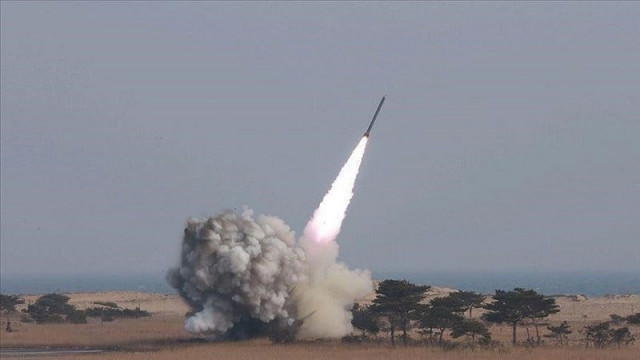India surpasses Pakistan in Nuclear arsenal: SIPRI report
Pakistan maintained its nuclear arsenal in 2023 while India surpassed Islamabad, focusing on China.

India now possesses more nuclear weapons than Pakistan, according to the Stockholm International Peace Research Institute's (SIPRI) annual review for 2024.
The report on global armaments, disarmament, and security revealed that the United States leads in nuclear capabilities, followed by Russia, the UK, France, China, India, Pakistan, North Korea, and Israel.
SIPRI's analysis indicated that India had increased its nuclear arsenal, surpassing Pakistan in the number of warheads. Both countries are involved in ongoing efforts to modernise their nuclear forces.
While India traditionally aimed its nuclear strategy at Pakistan, there's a noticeable shift towards bolstering longer-range capabilities, potentially extending to targets within China.
India is actively working on developing new systems, including ballistic and cruise missiles, to enhance its nuclear capabilities. Pakistan, while slightly behind India in terms of sheer numbers, is also focused on modernising its arsenal with new delivery systems.
Read also: Nuclear arms spending soars as global tensions swell: studies
Dan Smith, SIPRI Director, stated, “While the global number of nuclear warheads continues to fall as Cold War-era weapons are gradually dismantled, regrettably we continue to see year-on-year increases in the number of operational nuclear warheads.”
In January 2024, there were approximately 9,585 nuclear warheads in military stockpiles, with 3,904 deployed and around 2,100 on high operational alert. Nearly all these warheads belonged to Russia or the USA, but for the first time, China is believed to have some on high operational alert.
“China is expanding its nuclear arsenal faster than any other country,” said Hans M. Kristensen, SIPRI Associate Senior Fellow. He added, "There is a growing concern that North Korea might intend to use these weapons very early in a conflict."
While Israel maintained its arsenal of 90 warheads, North Korea expanded its arsenal by 20 warheads reaching a total of 50 warheads in military stockpile.
Smith further noted, "We are now in one of the most dangerous periods in human history, with numerous sources of instability."



















COMMENTS
Comments are moderated and generally will be posted if they are on-topic and not abusive.
For more information, please see our Comments FAQ